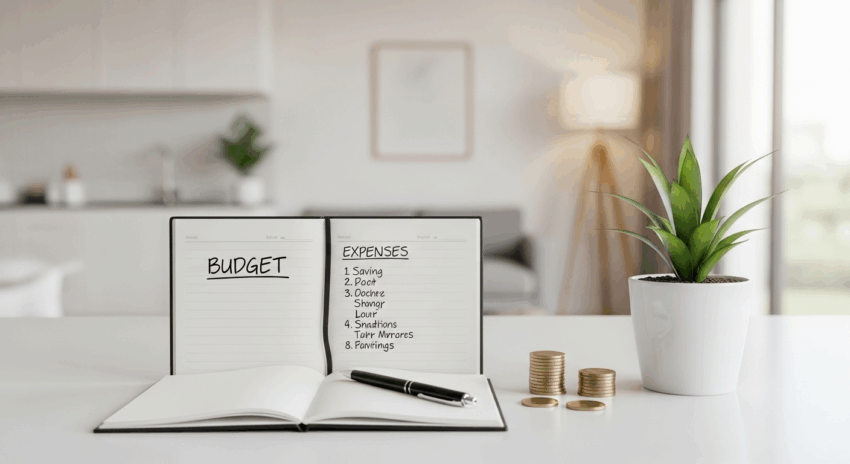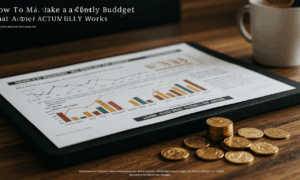Practical Ways to Effortlessly Reduce Your Monthly Expenses
Are you looking for practical ways to reduce your monthly expenses? In a world of rising costs, taking control of your spending is more crucial than ever for achieving long-term financial health. It is not about making drastic sacrifices, but about making smarter, more conscious decisions with your money. This article will guide you through simple, effective strategies you can implement immediately to cut costs, boost your savings, and pave the way toward your financial goals. These are not get-rich-quick schemes, but sustainable habits that will improve your financial standing over time.
By understanding where your money goes and making small, strategic adjustments, you can free up a surprising amount of cash each month. We will explore key areas from major household bills to those small, recurring charges that secretly drain your bank account. Let us dive into the methods that will help you gain control over your budget and build a more secure financial future.
Master Your Budget: The Foundation of Financial Control
Before you can effectively reduce expenses, you must first understand your spending habits. A budget is not a financial straitjacket; it is a tool for awareness and empowerment. The first step is to track your income and expenses meticulously for at least one month. You can use a dedicated budgeting app, a simple spreadsheet, or even a notebook. The goal is to create a clear picture of where every dollar is going.
Once you have the data, categorize your spending into three main groups: Needs (housing, utilities, groceries), Wants (entertainment, dining out, hobbies), and Savings/Debt Repayment. This categorization will instantly reveal areas where you have the most flexibility to cut back. Creating and sticking to a budget is a fundamental principle of personal finance, providing the roadmap you need to make informed financial decisions rather than spending blindly.
Taming the ‘Big Three’: Housing, Transportation, and Food
For most households, the majority of their budget is consumed by three major categories: housing, transportation, and food. Making small efficiency gains in these areas can lead to the most significant monthly savings.
- Housing: While moving or refinancing might be major decisions, you can still lower housing-related costs. Conduct an energy audit of your home. Switch to LED light bulbs, unplug electronics when not in use, and adjust your thermostat by a few degrees. These small actions can trim your utility bills noticeably. Also, review your homeowner’s or renter’s insurance annually to ensure you are getting the best rate for your coverage.
- Transportation: Your vehicle is another area ripe for savings. Start by shopping around for car insurance; loyalty does not always pay, and a competitor might offer the same coverage for less. Improve your fuel efficiency by maintaining proper tire pressure, avoiding aggressive acceleration, and combining errands into a single trip. When possible, consider using public transportation, carpooling, or biking to reduce fuel and maintenance costs.
- Food: This is often the most flexible of the ‘Big Three’. The single most effective strategy is meal planning. Plan your meals for the week, create a detailed shopping list, and stick to it. This practice minimizes impulse buys and reduces food waste. Prioritize cooking at home over dining out or ordering takeaway. You can save a substantial amount of money and often eat healthier as well. When you are at the grocery store, consider store brands, which often offer the same quality as name brands for a lower price.

Slay the ‘Subscription Creep’ and Phantom Charges
In today’s digital age, it is incredibly easy to sign up for subscriptions—streaming services, software, gym memberships, subscription boxes, and mobile apps. This phenomenon, known as ‘subscription creep’, results in a slow but steady drain on your finances. Many people pay for services they have completely forgotten about or rarely use.
Set aside time to conduct a thorough audit of all your recurring payments. Go through your bank and credit card statements and list every single subscription. For each one, ask yourself: Have I used this in the last month? Does it bring me significant value? Be ruthless. If the answer is no, cancel it immediately. You can almost always re-subscribe if you find you truly miss it. This simple exercise can often free up a significant amount of money each month, directly boosting your savings potential.
Smart Shopping and Negotiating Your Way to Lower Bills
Becoming a more conscious consumer is key to reducing your discretionary spending. It is not about never buying anything you want, but about being intentional with your purchases. For non-essential items, implement the 30-day rule. When you want to make a significant purchase, wait 30 days. After that period, if you still want and need the item, then you can proceed. This cooling-off period helps to separate genuine needs from impulsive wants.
Beyond mindful purchasing, do not be afraid to negotiate. Many of your monthly service bills—such as cable, internet, and mobile phone plans—are not set in stone. Call your providers’ customer service or retention departments at least once a year. Politely explain that you are reviewing your budget and looking for ways to lower your bill. Mention competitor offers if you know of them. Companies value customer loyalty and would often rather provide a discount than lose you to a competitor. A single 15-minute phone call could save you hundreds of dollars over a year.
Automate Your Savings to ‘Pay Yourself First’
One of the most effortless and effective ways to ensure you are saving money is to automate the process. The ‘pay yourself first’ principle means you treat your savings as a non-negotiable bill. Instead of saving what is left over at the end of the month, you save a predetermined amount as soon as you receive your paycheck.
Set up an automatic transfer from your primary checking account to a separate, high-yield savings account or an investment portfolio. Schedule this transfer for the day after your payday. By moving the money before you have a chance to spend it, you remove the temptation and make saving a seamless habit. This single action shifts your financial priorities and guarantees that you are consistently working toward your long-term goals, whether that is building an emergency fund, saving for a down payment, or investing for retirement.
Conclusion: Small Changes, Big Impact
Reducing your monthly expenses does not require a complete lifestyle overhaul. It is about building awareness, making intentional choices, and implementing smart habits. By mastering your budget, optimizing your spending on the ‘Big Three’, eliminating unnecessary subscriptions, becoming a savvy shopper, and automating your savings, you take back control of your financial destiny.
Start today by choosing just one or two of these strategies to implement. As you see the positive results, you will be motivated to incorporate more. Every dollar you save is a dollar you can redirect toward what truly matters: eliminating debt, building wealth, and achieving financial freedom. The power to change your financial future is in your hands, and it starts with these small, practical steps.
Frequently Asked Questions
How quickly can I see results from implementing these expense-reducing tips?
The timeline for results varies depending on the strategy. Actions like canceling unused subscriptions or negotiating a lower rate on your internet bill will provide immediate savings reflected in your very next statement. Changes in daily habits, such as meal planning and mindful spending, will typically show a noticeable impact on your budget within the first 30 days. The key to significant long-term impact is consistency.
I feel overwhelmed by all these suggestions. What is the best first step to take?
The most effective and least intimidating place to start is simply tracking your spending. Dedicate one month to recording every single expense without judgment. This single action provides the clarity you need to understand your financial habits. Once you know exactly where your money is going, you can identify the easiest and most impactful areas to address first, making the entire process feel much more manageable.





